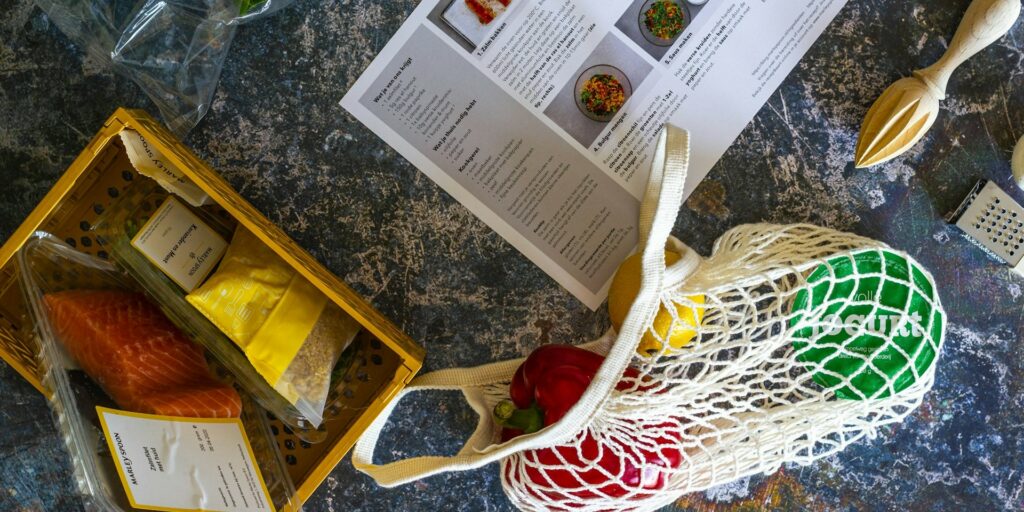
The problem
In the UK, diets are unhealthy. They are high in nutrients of concern and ultra-processed foods (UPFs) tend to be worse for those on low incomes. We need commercially viable and equitable interventions that can increase consumption of whole foods up reduce UPFs.
Commercial recipe boxes, offering convenient access to whole foods, may lead to longer-term impacts on household diets by encouraging healthy home food preparation. However, recipe-boxes may be less affordable for lower income consumers.
The intervention
This intervention involves participants taking part in a a recipe-box subscription (3-4 meals per week per person) for 8 weeks. Participants choose their order online from around 75 meals. Each box contains pre-portioned ingredients to prepare a meal, together with simple instructions and links to instructional videos.
Additional components may include:
- discounts at multiple levels
- cupboard ingredients not included in kits (e.g. cooking oil, butter, salt and pepper).
The research
Primary research question
Does a recipe box subscription lead to a healthier dietary pattern, and if so for whom?
Theory of change
Research approach
Key outcomes for measurement will be dietary quality (Alternative Healthy Eating Index) and percentage energy intake from Ultra-Processed Foods (UPFs).
We will first analyse data on sociodemographic, geographic, and temporal patterning of sales from the recipe box company. Data on elasticity of demand, subscription length, and recipe preferences across the socioeconomic gradient will help us to understand how we can best extend the intervention’s reach beyond the company’s mainly ABC1 customer base.
A pilot RCT will then assess trial procedures, including recruitment and retention, feasibility and acceptability, and generate data to inform sample size calculations. We will conduct a wait-list, parallel group (or factorial) Randomised Controlled Trial, with households as the unit of randomisation.
We will conduct a Process evaluation, which will assess the fidelity, acceptability, and feasibility across the socio-economic spectrum, as well as developing understanding of mechanisms of action, unintended consequences and wider impacts.
An economic evaluation will use cost-benefit analysis.
Modelling analysis will look change in nutritional content of diet to parameterise the PRIMETime model and estimate morbidity and mortality, QALYs and DALYs, and health and social care costs from non-communicable diseases. Change in food ingredients consumed to parameterise Life Cycle Analysis and estimate environmental impacts (e.g. greenhouse gas emissions, land use, water depletion, biodiversity loss, eutrophication).
Outputs and impacts
We will produce papers reporting the main trial results (impacts on diet), modelled impacts on health and environment, and process and economic evaluations.
We will input to a paper on contributions to system change.
Research Team
- Prof Emma Frew | Institute of Applied Health Research, University of Birmingham
- Prof Martin White | MRC Epidemiology Unit, University of Cambridge
- Dr Jean Adams | MRC Epidemiology Unit, University of Cambridge
- Noah Cooke | MRC Epidemiology Unit, University of Cambridge
- Prof Jaideep Prabhu | Judge Business School, University of Cambridge
- Dr Thomas Ball | Department of Zoology, University of Cambridge
